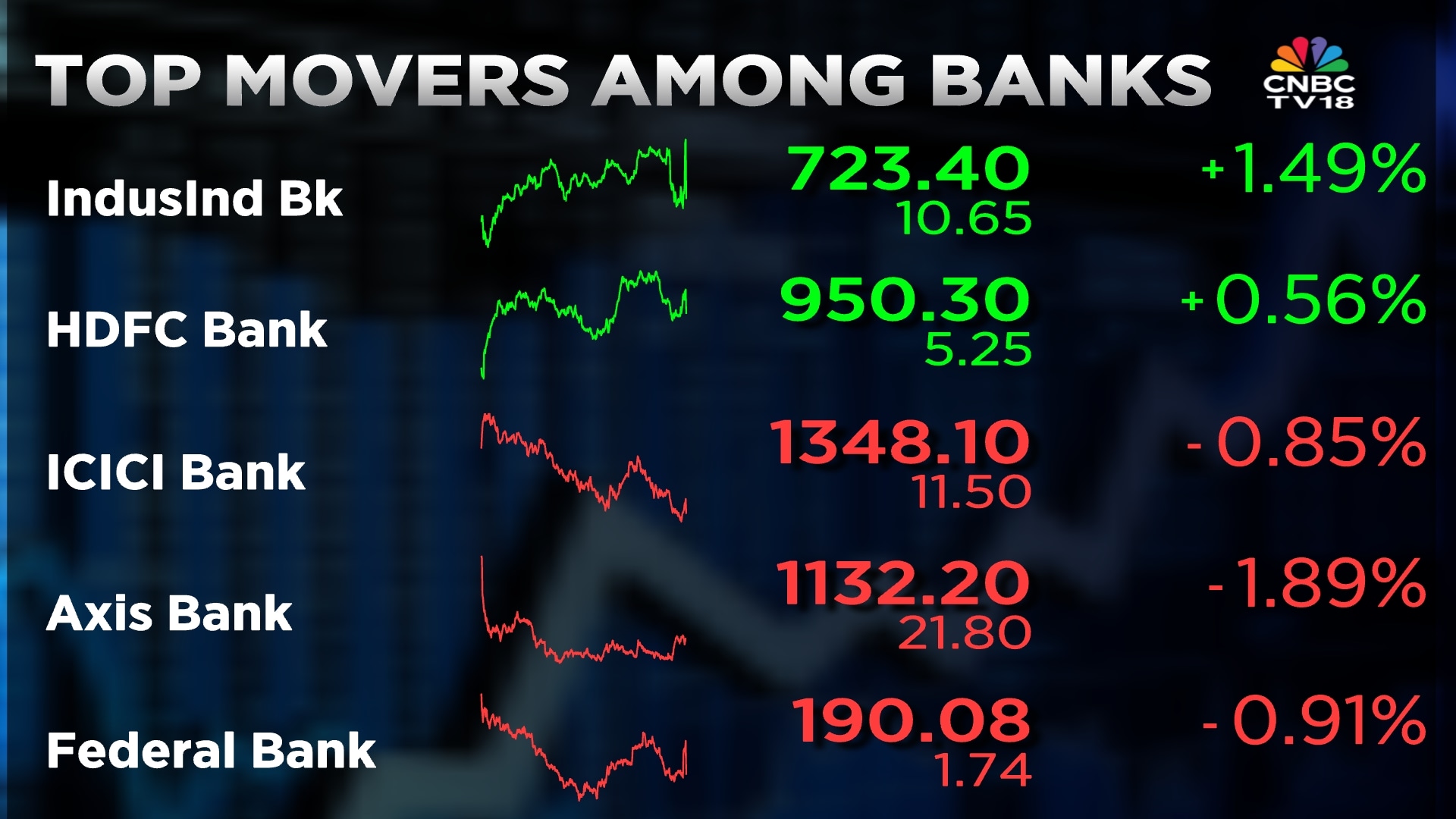Business
Indian Bank Stocks Show Divergence Ahead of RBI Policy Review

Indian bank stocks exhibited mixed performance on September 29, 2023, as the Reserve Bank of India (RBI) commenced its bi-monthly meeting to review interest rates. The Nifty 50 index was influenced by varying movements among major banks. While HDFC Bank added 24 points to the index, both ICICI Bank and Axis Bank pulled it down by more than 27 points, demonstrating contrasting investor sentiment.
The standout performer was IndusInd Bank, which surged by 2.68% after Morgan Stanley upgraded its stock rating to ‘equal weight’. The brokerage firm set an ambitious target price of ₹2,785, suggesting a potential increase of nearly three times from the stock’s closing price on that Friday.
Market Trends and Economic Indicators
Conversely, Axis Bank emerged as the top loser on the Nifty 50. The Public Sector Undertaking (PSU) Bank index, however, was the leading sectoral gainer, closely followed by real estate stocks. This indicates a burgeoning interest in sectors sensitive to possible changes in interest rates following the RBI’s policy decisions. Notably, the auto index was the day’s biggest loser, reflecting a broader market reaction to economic indicators.
According to a poll conducted by CNBC-TV18, the majority of economists do not anticipate a cut in the repo rate during the RBI’s meeting on October 1. Although a cut seems unlikely, many expect a dovish statement from Sanjay Malhotra, the RBI Governor, which could provide reassurance to the jittery markets. Kamaksha Trivedi, Chief Foreign Exchange and Emerging Markets Strategist at Goldman Sachs, indicated that further rate cuts from the central bank are more about timing than possibility, predicting one more cut in the current cycle.
Valuations and Investment Insights
While overall market sentiment remains cautious, analysts suggest that current valuations favor bank stocks. Pratik Gupta, CEO and Co-Head at Kotak Institutional Equities, noted that the price-to-book ratio of the Nifty Bank index has dropped to a five-month low. This decline reflects a decrease in exuberance following recent Goods and Services Tax (GST) adjustments. Although these cuts are projected to stimulate consumer spending, confidence in a significant market turnaround is still lacking.
Gupta recommends large-cap private banks and PSU bank stocks to his clients, emphasizing that while lower GST rates address some banking challenges, they only resolve a portion of the issues. The absence of a broad-based revival in capital expenditure remains a concern for the banking sector.
As the market prepares for potential policy shifts, investors are urged to stay informed and consider the implications of the RBI’s decisions on their portfolios.
-

 World5 months ago
World5 months agoSBI Announces QIP Floor Price at ₹811.05 Per Share
-

 Lifestyle5 months ago
Lifestyle5 months agoCept Unveils ₹3.1 Crore Urban Mobility Plan for Sustainable Growth
-

 Science4 months ago
Science4 months agoNew Blood Group Discovered in South Indian Woman at Rotary Centre
-

 World5 months ago
World5 months agoTorrential Rains Cause Flash Flooding in New York and New Jersey
-

 Top Stories5 months ago
Top Stories5 months agoKonkani Cultural Organisation to Host Pearl Jubilee in Abu Dhabi
-

 Sports4 months ago
Sports4 months agoBroad Advocates for Bowling Change Ahead of Final Test Against India
-

 Science5 months ago
Science5 months agoNothing Headphone 1 Review: A Bold Contender in Audio Design
-

 Top Stories5 months ago
Top Stories5 months agoAir India Crash Investigation Highlights Boeing Fuel Switch Concerns
-

 Business5 months ago
Business5 months agoIndian Stock Market Rebounds: Sensex and Nifty Rise After Four-Day Decline
-

 Sports4 months ago
Sports4 months agoCristian Totti Retires at 19: Pressure of Fame Takes Toll
-

 Politics5 months ago
Politics5 months agoAbandoned Doberman Finds New Home After Journey to Prague
-

 Top Stories5 months ago
Top Stories5 months agoPatna Bank Manager Abhishek Varun Found Dead in Well









